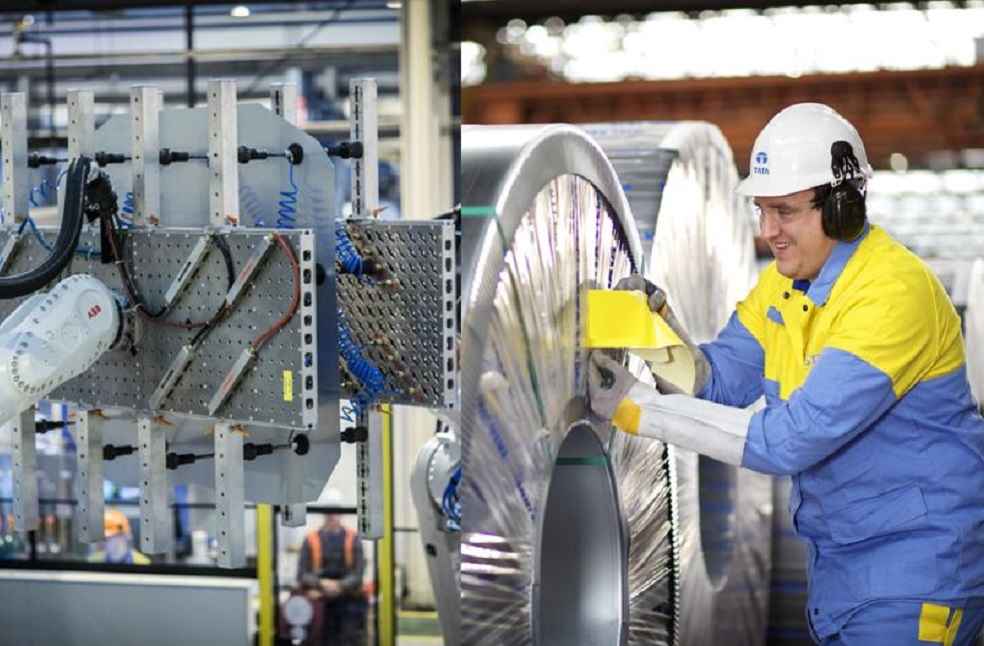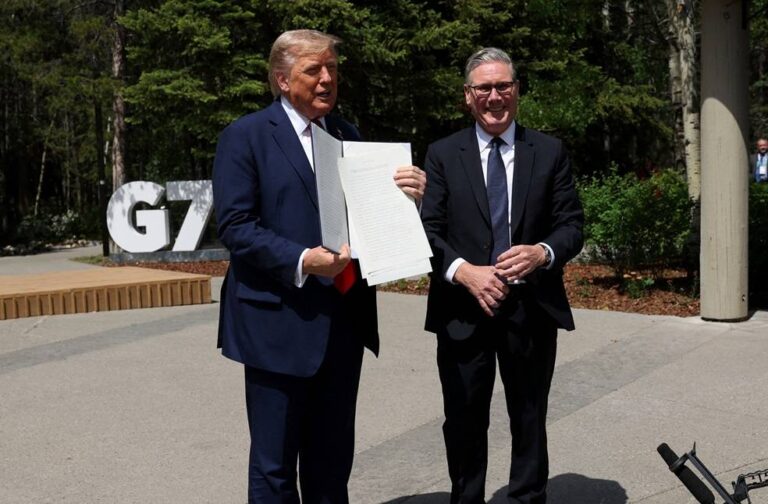U.S. President Donald Trump and UK Prime Minister Keir Starmer on Monday declared the signing of a trade agreement that will reduce tariffs on British automotive and aerospace imports, as reported by The Associated Press. However, negotiations are still ongoing regarding the treatment of steel production within the deal.
During a press briefing at the G7 Summit in Canada, President Trump and Prime Minister Keir Starmer presented what Trump described as a long-anticipated trade agreement.
Trump stood by the agreement, declaring it a ‘fair deal for both’ and forecasting it would “produce a lot of jobs, a lot of income.”
“We just signed it, and it’s done,” he affirmed. Starmer stated that it was a great day for both nations and called the agreement a clear demonstration of the shared strength.

The deal signed at the G7 builds on an earlier framework unveiled by Trump and Starmer in May, which aimed to reduce U.S. import tariffs on British exports like cars, steel, and aluminum in exchange for increased British market access for American products such as beef and ethanol. However, the finalized agreement on Monday addresses only British automotive and aerospace exports, leaving steel negotiations still unresolved.
According to the British government, the new trade deal eliminates U.S. tariffs on UK aerospace exports, sparing Britain from the 10% duty the Trump administration had planned for other nations—providing a lift to companies like Rolls-Royce. The agreement also lowers the tariff on British cars to 10%, reduced from the current 27.5%, for up to 100,000 vehicles annually, effective at the end of the month.
Apart from these, there was no final deal to eliminate tariffs on British steel, a measure crucial to stabilizing the UK’s struggling steel sector.

The agreement left UK businesses uncertain about whether they might face sudden tariff increases from the Trump administration. That uncertainty turned into concern earlier this month when Trump abruptly announced a global hike in metal tariffs to 50%. The UK was caught off guard, though Trump later clarified that British metals would still be subject to the existing 25% rate.
The White House later issued a statement clarifying that Commerce Secretary Howard Lutnick would set quotas on steel and aluminum imports into the U.S. without facing existing Trump tariffs. The British government reiterated that the agreement still seeks for zero tariffs on key steel products. However, discussions on pharmaceutical trade remain unresolved, with both sides agreeing to further negotiations.
The finalized deal also allows both U.S. and UK farmers to export up to 13,000 metric tons of beef annually, though the UK’s prohibition on hormone-treated beef will continue to apply.
GLOBAL ROUNDUP | U.S. Canceled Next Round of Trade Talks with Russia, Says MFA



